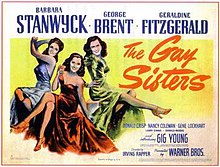
Frances Burney, also known as Fanny Burney and later Madame d'Arblay, was an English satirical novelist, diarist and playwright. In 1786–1790 she held the post of "Keeper of the Robes" to Charlotte of Mecklenburg-Strelitz, George III's queen. In 1793, aged 41, she married a French exile, General Alexandre d'Arblay. After a long writing career and wartime travels that stranded her in France for over a decade, she settled in Bath, England, where she died on 6 January 1840. The first of her four novels, Evelina (1778), was the most successful and remains her most highly regarded, followed by Cecilia (1782). Most of her stage plays were not performed in her lifetime. She wrote a memoir of her father (1832) and many letters and journals that have been gradually published since 1889, forty-nine years after her death.

The Hidden Staircase is the second volume in the Nancy Drew Mystery Stories series written under the pseudonym Carolyn Keene, published in 1930 and revised in 1959. The original text was written by Mildred Wirt Benson, and she has said that it is her personal favorite of the Nancy Drew Books she wrote.

A Cinderella Story is a 2004 American teen romantic comedy film directed by Mark Rosman, written by Leigh Dunlap and starring Hilary Duff, Chad Michael Murray, Jennifer Coolidge, and Regina King. A modernization of the classic Cinderella folklore, the film's plot revolves around two internet pen pals who plan to meet in person at their high school's Halloween dance.
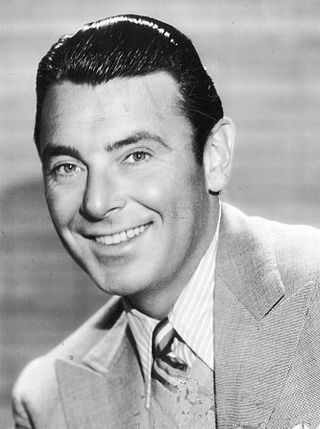
George Brent was an Irish-American stage, film, and television actor. He is best remembered for the eleven films he made with Bette Davis, which included Jezebel and Dark Victory.

Conflict is a 1945 American black-and-white suspense film noir made by Warner Brothers. It was directed by Curtis Bernhardt, produced by William Jacobs from a screenplay by Arthur T. Horman and Dwight Taylor, based on the story The Pentacle by Alfred Neumann and Robert Siodmak. It starred Humphrey Bogart, Alexis Smith, and Sydney Greenstreet. The film is the only pairing of Bogart and Greenstreet of the five in which they acted together where Bogart rather than Greenstreet is the villain or corrupt character. There is also a cameo appearance of the Maltese Falcon statue.
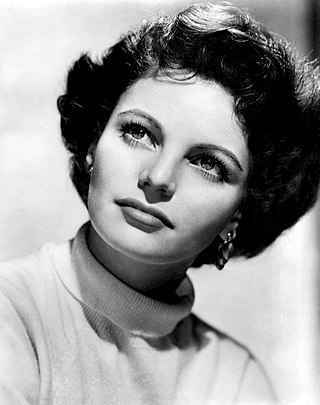
Geraldine Brooks was an American actress whose three-decade career on stage as well as in films and on television was noted with nominations for an Emmy in 1962 and a Tony in 1970. She was married to author Budd Schulberg.

My Reputation is a 1946 American romantic drama film directed by Curtis Bernhardt. Barbara Stanwyck portrays an upper-class widow whose romance with an army officer causes trouble for her gossiping friends, domineering mother and young sons. Catherine Turney wrote the script, an adaptation of Clare Jaynes' 1942 novel Instruct My Sorrows. Stanwyck's costumes were designed by Edith Head.
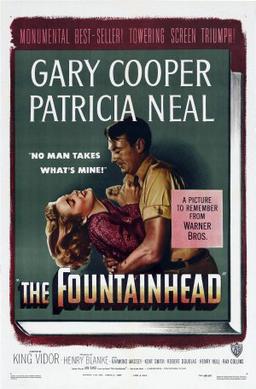
The Fountainhead is a 1949 American black-and-white drama film produced by Henry Blanke, directed by King Vidor, and starring Gary Cooper, Patricia Neal, Raymond Massey, Robert Douglas and Kent Smith. The film is based on the bestselling 1943 novel of the same name by Ayn Rand, who also wrote the adaptation. Although Rand's screenplay was used with minimal alterations, she later criticized the editing, production design and acting.
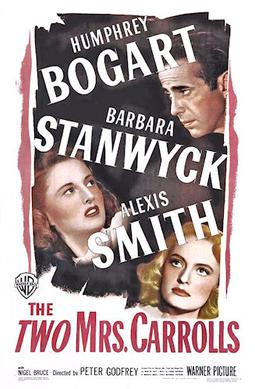
The Two Mrs. Carrolls is a 1947 American mystery film noir directed by Peter Godfrey and starring Humphrey Bogart, Barbara Stanwyck, and Alexis Smith. It was produced by Mark Hellinger from a screenplay by Thomas Job, based on the 1935 play by Martin Vale.
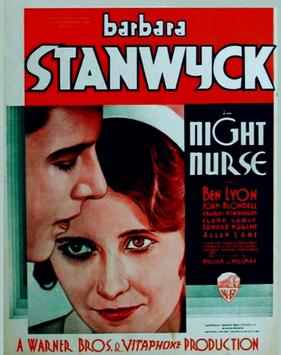
Night Nurse is a 1931 American pre-Code crime drama mystery film produced and distributed by Warner Bros. directed by William A. Wellman, and starring Barbara Stanwyck, Ben Lyon, Joan Blondell and Clark Gable. The film is based on the 1930 novel of the same name by Dora Macy, the pen name of Grace Perkins. The film was considered risqué at the time of its release, particularly the scenes where Stanwyck and Blondell are shown in their lingerie. Clark Gable portrays a viciously violent chauffeur who is gradually starving two little girls to death after having already purposely run over their slightly older sister with a limousine, killing her.

Gambling Lady is a 1934 American pre-Code romantic drama film directed by Archie Mayo, and starring Barbara Stanwyck, Joel McCrea and Pat O'Brien.

Ex-Lady is a 1933 American pre-Code comedy/drama film directed by Robert Florey. The screenplay by David Boehm is a remake of the Barbara Stanwyck film Illicit (1931), both crediting a story by Edith Fitzgerald and Robert Riskin. The film focuses on a pair of lovers, commercial illustrator Helen Bauer and advertising writer Don Peterson, who have been living together quite happily for some time. One night, after hiding in Helen's bedroom until their party guests have all left, Don announces that he is tired of sneaking around. He wants marriage—and possibly children—and Helen finally agrees, although she is afraid that it will wreck their relationship. Her predictions of trouble—increased by the stresses of opening their own advertising agency—come true, but in the end, with the serendipitous intervention of their perpetually inebriated friend, Van, they reconcile and resume the mixed blessings of wedded bliss.
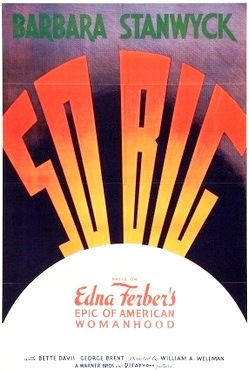
So Big is a 1932 pre-Code American drama film directed by William A. Wellman and starring Barbara Stanwyck. The screenplay by J. Grubb Alexander and Robert Lord is based on the 1924 Pulitzer Prize-winning novel of the same name, by Edna Ferber.

Cry Wolf is a 1947 American mystery film noir directed by Peter Godfrey and starring Errol Flynn, Barbara Stanwyck and Geraldine Brooks. It was produced and distributed by Warner Bros. It is based on the 1945 novel of the same name by Marjorie Carleton.
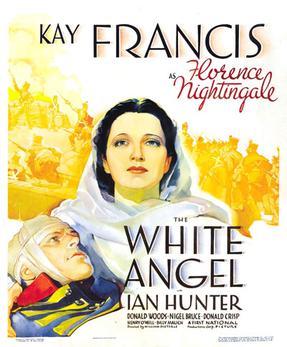
The White Angel is a 1936 American historical drama film directed by William Dieterle and starring Kay Francis, Ian Hunter and Donald Woods. The film depicts Florence Nightingale's pioneering work in nursing during the Crimean War. It was produced and distributed by Hollywood studio Warner Brothers.
Dear Heart is a 1964 American romantic-comedy film starring Glenn Ford and Geraldine Page as lonely middle-aged people who fall in love at a hotel convention. It was directed by Delbert Mann, from a screenplay by Tad Mosel. Its theme song "Dear Heart" was nominated for the Academy Award for Best Original Song.

The Flirting Widow is a 1930 American pre-Code comedy film directed by William A. Seiter and starring Dorothy Mackaill, Basil Rathbone, Leila Hyams and Claude Gillingwater. It was produced and released by First National Pictures, a subsidiary of Warner Bros.

Illicit is a 1931 American pre-Code drama film directed by Archie Mayo and starring Barbara Stanwyck, James Rennie, Ricardo Cortez, and Natalie Moorhead. Based on a play by Edith Fitzgerald and Robert Riskin, the film is about a young couple living together out of wedlock because the woman does not believe in marriage. When they finally get married, both become unfaithful to each other. Illicit was produced and distributed by Warner Bros.
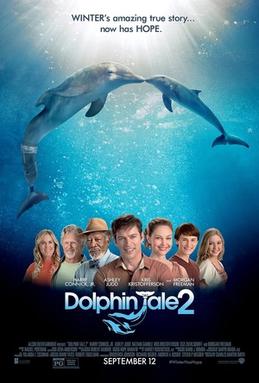
Dolphin Tale 2 is a 2014 American family film written and directed by Charles Martin Smith as the sequel to his 2011 film Dolphin Tale which in-turn was based on the true story about a rescued bottlenose dolphin named Winter who made her final on-screen appearance in this film before her death in November 2021. In addition to Winter, most of the cast from the first film also reprise their roles including Harry Connick Jr., Ashley Judd, Nathan Gamble, Cozi Zuehlsdorff, Kris Kristofferson, Morgan Freeman, Austin Stowell, Tom Nowicki, Austin Highsmith, Betsy Landin and Juliana Harkavy while Hope made her film debut. It was released on September 12, 2014, and tells the story of another dolphin at the Clearwater Marine Aquarium named "Hope". After Winter's elderly companion and surrogate mother, Panama, dies, Winter's future is in jeopardy, unless Sawyer, Clay, Hazel, and the rest of the team can find a new companion for her. The film received mixed reviews from critics and grossed $57.8 million.
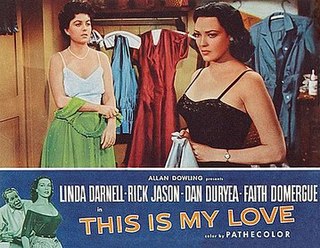
This Is My Love is a 1954 American drama film directed by Stuart Heisler, written by Hugh Brooke and Hagar Wilde, and starring Linda Darnell, Rick Jason, Dan Duryea, Faith Domergue, Connie Russell and Hal Baylor. It was released on November 11, 1954, by RKO Pictures.
